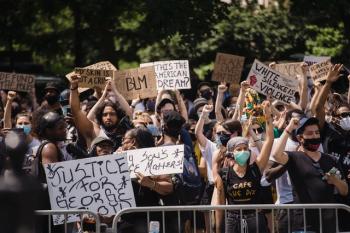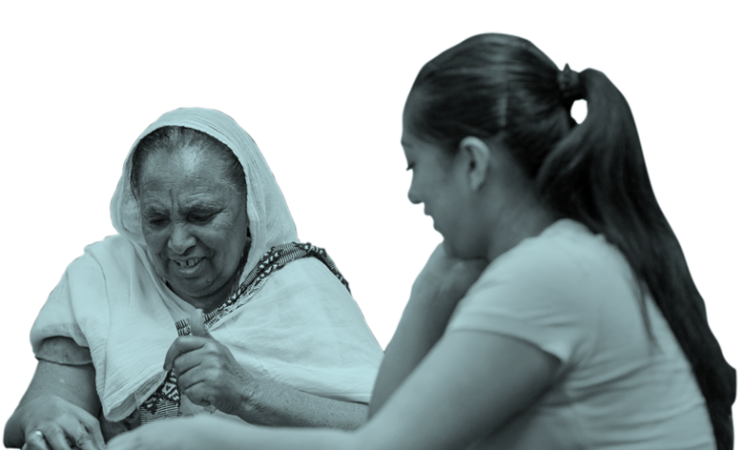Classroom Resources for Talking about Racism
Initiating a conversation in the classroom about racism is intimidating. Understandably, many teachers and tutors feel unprepared to navigate and facilitate challenging conversations about race. But race, bias, privilege and prejudice are a part of everyone’s life. Talking about these topics in the classroom through respectful, honest conversations can help learners and teachers uncover their own blind spots, notice and name racism and discrimination in their school, work, and communities, and practice language for self-advocacy or interrupting racism.
Here are resources that teachers and tutors can use when preparing to have conversations around race. Please note that all of the resources listed below recommend beginning with honest self-reflection outside of the classroom; this is an essential component for everyone who wants to engage in anti-racist work.
Creating the Space to Talk about Race in Your School
Discussions in your classroom can even be steppingstones to addressing race in your school, school district and community. Creating the space to talk about race can open the way for some of the most powerful learning and change that you and your students will ever experience. The following tips can help you make race conversations normal, constructive and successful.
Six Truths about Racism that White Teachers Must Know
George Floyd's killing in broad daylight, and in the presence of multiple witnesses, has exposed several ugly truths about U.S. society. White privilege, systemic racism, the toxic relationship between law enforcement and people of color, the many microaggressions with which people of color must contend daily, and the unique dilemma of being black and male in the United States are among the combination of societal factors at play in this killing. Now, educators must be willing to look at these hard truths, not averting our gaze from the most difficult ones, to understand how each impacts students of color and to seek ways to eliminate these racist practices from schools.
Ten Things Every White Teacher Should Know When Talking about Race
This episode is for those who are frustrated with conversations about race right now, and also for those who want to have hard conversations, support their students, and step up as advocates and allies, but just don’t know how to talk about racial issues and are afraid of saying the wrong thing.
Talking about Racism and Violence: Resources for Teachers and Families
The following resources can help promote deeper understanding around the issues of racism and violence. They also can contribute to discussion of these topics with colleagues and students during this difficult time, even at a distance.
The MSW@USC Diversity Toolkit: A Guide to Discussing Identity, Power and Privilege
This toolkit is meant for anyone who feels there is a lack of productive discourse around issues of diversity and the role of identity in social relationships, both on a micro (individual) and macro (communal) level. Perhaps you are a teacher, youth group facilitator, student affairs personnel or manage a team that works with an underserved population. Training of this kind can provide historical context about the politics of identity and the dynamics of power and privilege or help build greater self-awareness.
The March Continues: The Five Essential Practices for Teaching the Civil Rights Movement
These practices work well for many classes and topics, but in this guide, we apply them specifically to teaching the civil rights movement. The topic opens a special window for you to use all of these practices, engaging diverse students in constructive consideration of the present in light of our past and preparing them to continue the work that the civil rights movement began.
Sign up to have new Tutor Tips sent directly to your email inbox each week at http://feedburner.google.com/fb/a/mailverify?uri=MLC-Tutor-Tips&%3Bloc=en_US
Photo by Life Matters from Pexels


